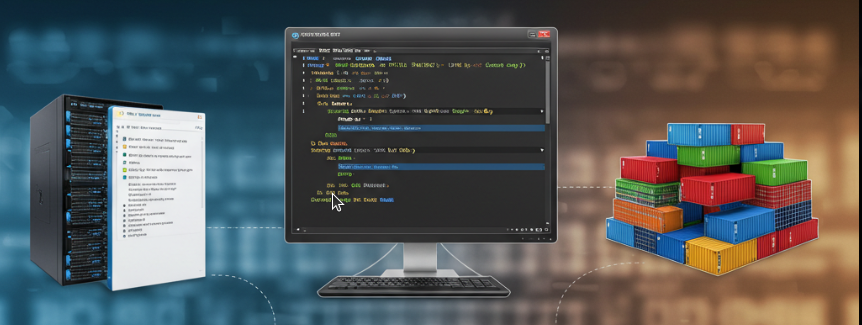Main Types of MFT Solution Software Environments
Managed File Transfer (MFT) solutions are essential for secure, compliant, and efficient file exchange between systems, users, and business partners. When selecting an MFT platform like SFTPPlus MFT, one of the key considerations is deployment flexibility.
Let's explore the most common platform deployment options for MFT software and what each offers in terms of benefits and use cases:
- Windows
- Linux, Any Linux distribution like Red Hat Enterprise Linux (RHEL) or Ubuntu
- Kubernetes or OpenShift

Windows
🪟 Windows deployment is ideal for organizations standardized on Microsoft environments
Deploying SFTPPlus MFT on Windows is a straightforward choice for most enterprise environments.
The installation is a simple .EXE self install or a ZIP archive, suitable for automated Windows deployments.
SFTPPlus MFT integrates with Windows security models, supports NTFS permissions, and can be configured to work with Active Directory for user authentication.
Benefits:
- Familiar administrative tools and UI
- Easy integration with Windows services (e.g., Event Log, Scheduled Tasks)
- Support for PowerShell scripting and automation
- Rapid deployment in on-prem or virtualized Windows servers
Use case: A financial institution running Windows Server with Active Directory can use SFTPPlus MFT for secure internal transfers and partner exchanges while adhering to strict access controls.
Linux
The 🐧 Linux deployment is ideal for cost efficient and performance-focused environments.
Linux is a highly reliable platform for deploying MFT software, especially in server-centric or high-availability environments.
SFTPPlus MFT can run on various distributions like Ubuntu, CentOS, Red Hat, and Debian, offering robust performance and customization options.
Benefits:
- Lightweight and efficient resource usage
- Strong security model with file-level permissions
- Ideal for scripting and DevOps integrations (Bash, Python, etc.)
- Compatible with modern CI/CD workflows
Use case: An electricity provider company automates data flows between microservices and external clients using SFTPPlus MFT on Linux, integrating with Python scripts and system cron jobs for seamless automation of various smart meters.
Kubernetes or OpenShift
The 📦 Kubernetes or OpenShift is ideal for cloud-native, containerized environments, with companies focused on practices like architecture as a code or fully orchestrated software systems.
Kubernetes enables scalable, containerized deployments of MFT solutions like SFTPPlus MFT. This is a powerful option for businesses embracing DevOps, microservices, or hybrid-cloud architectures.
Benefits:
- Elastic scaling for high-throughput file transfer demands
- SFTPPlus MFT cluster controller component allows a web-based management interface for your MFT transfers
- SFTPPlus MFT provides HTTP based APIs for authentication, file transfers, event based scheduling and audit.
- Infrastructure as Code (IaC) via Helm charts or YAML configurations
- Seamless integration with CI/CD pipelines and service meshes
Use case: An enterprise with distributed workloads across AWS and on-premises data centers deploys SFTPPlus MFT on Kubernetes for centralized, resilient MFT services managed through Helm and GitOps.
Choosing the Right Platform
The best platform for deploying your MFT solution depends on your technical team cost requirements, and operational goals.
With SFTPPlus MFT, you have the flexibility to deploy your MFT infrastructure where it makes the most sense, from Windows-based systems to modern Linux servers or fully orchestrated Kubernetes clusters.
Our expert team is here to help you assess your current setup and guide you through the deployment process to ensure a secure, scalable, and compliant MFT implementation.
Need help deciding which deployment path is right for you?
👉 Contact our support team to get personalized consultancy services and discover how SFTPPlus MFT can adapt to your infrastructure with ease.